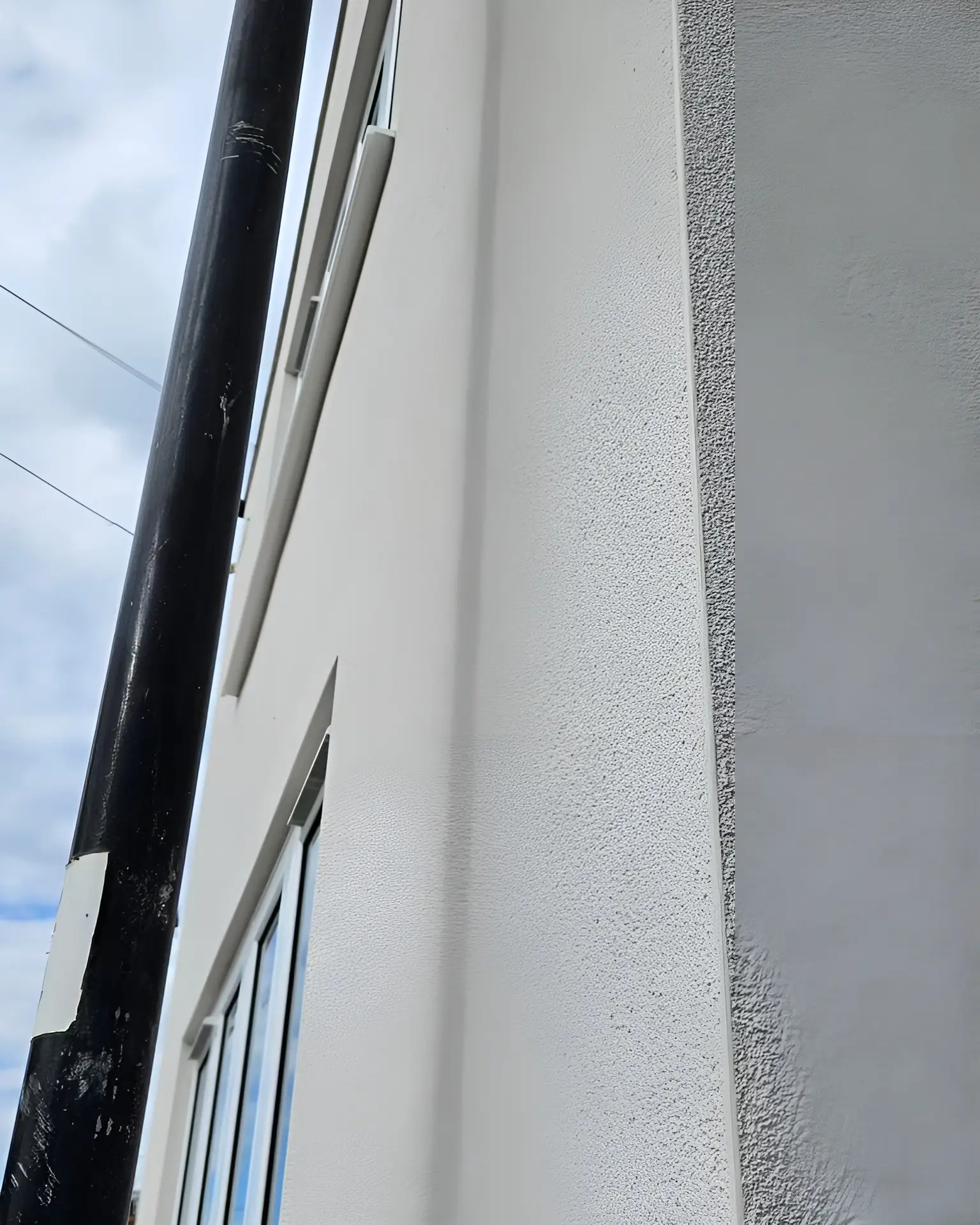In the world of exterior wall finishes, thin coat render has emerged as a popular choice for homeowners and builders alike. This innovative rendering solution offers a sleek, modern appearance while providing excellent protection against the elements. But is thin coat truly the answer to low-maintenance exteriors? Let’s delve into the world of thin coat render and explore its benefits, applications, and potential drawbacks.
Understanding Thin Coat Render: A Modern Approach to Exterior Finishes
Thin coat render, also known as thin coat plaster or skim coat, is a type of exterior wall finish that is applied in a much thinner layer compared to traditional renders. This modern rendering technique typically involves applying a layer of render that is between 1-3mm thick, as opposed to the 15-20mm thickness of conventional renders.
The thin coat render system usually consists of a base coat and a finishing coat. The base coat provides adhesion and creates a smooth surface, while the finishing coat adds colour and texture. This two-coat system allows for a quicker application process and faster drying times, making it an attractive option for both new builds and renovation projects.
The Rise of Silicone Thin Coat Render in the UK
One of the most popular types of thin coat render in the UK is silicone thin coat render. This advanced rendering solution combines the benefits of traditional renders with modern technology, offering superior water repellence and breathability.
Silicone thin coat render is formulated with silicone resin, which gives it excellent hydrophobic properties. This means that water beads up and rolls off the surface, rather than being absorbed into the render. As a result, the render stays cleaner for longer and is less susceptible to algae and mould growth.
Benefits of Choosing Thin Coat for Your Exterior
There are several advantages to opting for a thin coat render system for your property’s exterior:
1. Low maintenance: The smooth, water-resistant surface of thin coat render requires minimal upkeep, saving time and money on cleaning and repairs.
2. Durability: Despite its thin application, this type of render is highly durable and resistant to cracking and chipping.
3. Versatility: Thin coat render can be applied to various substrates, including brick, concrete, and existing render.
4. Quick application: The thin nature of the product allows for faster application and drying times compared to traditional renders.
5. Aesthetic appeal: Thin coat render provides a smooth, contemporary finish that can enhance the appearance of any property.
Silicone Thin Coat Render: A Game-Changer in Exterior Protection
Silicone thin coat render takes the benefits of standard thin coat systems to the next level. Its unique formulation offers additional advantages that make it an excellent choice for UK properties:
1. Enhanced weather resistance: The silicone content provides superior protection against rain, wind, and UV rays.
2. Breathability: Unlike some traditional renders, silicone thin coat allows moisture vapour to escape from the building, reducing the risk of damp issues.
3. Self-cleaning properties: The hydrophobic nature of silicone render means that dirt and pollutants are easily washed away by rainfall.
4. Colour stability: Silicone renders are less prone to fading and discolouration, maintaining their appearance for longer.

Application Process: How Thin Coat Render Is Applied
The application of thin coat render requires skill and precision. Here’s a brief overview of the process:
1. Surface preparation: The substrate must be clean, dry, and free from any loose material.
2. Priming: A suitable primer is applied to ensure proper adhesion of the render.
3. Base coat application: A thin layer of base coat is applied using a trowel or spray machine.
4. Mesh reinforcement: For added strength, a fibreglass mesh may be embedded into the base coat.
5. Finishing coat: Once the base coat has dried, the coloured finishing coat is applied to achieve the desired texture and appearance.
6. Curing: The render is left to cure fully, which typically takes 24-48 hours depending on weather conditions.
For professional results, it’s recommended to contact experienced rendering specialists who can ensure a high-quality finish.
Comparing Thin Coat to Traditional Rendering Methods
While thin coat render offers many benefits, it’s essential to understand how it compares to traditional rendering methods:
| Feature | Thin Coat Render | Traditional Render |
|---|---|---|
| Thickness | 1-3mm | 15-20mm |
| Application time | Faster | Slower |
| Drying time | Quicker | Longer |
| Flexibility | More flexible | Less flexible |
| Cost | Generally higher | Generally lower |
| Durability | Excellent | Good |
| Maintenance | Low | Moderate to high |
Is Thin Coat Suitable for All Properties?
While thin coat render is versatile, it may not be the best choice for every property. Factors to consider include:
1. Substrate condition: Thin coat render requires a relatively smooth and stable surface. Properties with significant surface irregularities may need additional preparation.
2. Climate: Although thin coat render performs well in most weather conditions, extreme environments may require specialised rendering solutions.
3. Building age: Older properties with solid walls may benefit more from breathable lime-based renders.
4. Budget: The initial cost of thin coat render can be higher than traditional options, although this may be offset by reduced maintenance costs over time.
![]()
Maintenance Tips for Thin Coat Rendered Exteriors
While thin coat render is low-maintenance, some care is still required to keep it looking its best:
1. Regular inspections: Check for any signs of damage or wear annually.
2. Gentle cleaning: Use a soft brush and mild detergent to remove any stubborn dirt or stains.
3. Avoid pressure washing: High-pressure water can damage the render surface.
4. Address issues promptly: Repair any cracks or chips as soon as they appear to prevent further damage.
5. Repainting: If desired, thin coat render can be repainted after several years to refresh its appearance.
The Future of Exterior Finishes: Is Thin Coat the Way Forward?
As technology continues to advance, thin coat render systems are likely to become even more sophisticated. Future developments may include:
1. Enhanced eco-friendly formulations
2. Improved thermal insulation properties
3. Integration of smart technologies for self-monitoring and repair
While traditional rendering methods will always have their place, thin coat render represents a significant step forward in exterior wall finishes. Its combination of durability, low maintenance, and aesthetic appeal makes it an attractive option for many property owners.
Making the Right Choice for Your Property
Deciding whether thin coat render is the right solution for your property requires careful consideration of your specific needs, budget, and the characteristics of your building. While it offers many advantages, it’s essential to weigh these against other options and seek professional advice.
For those looking to explore thin coat render options, including silicone thin coat render, City Rendering offers expert guidance and high-quality rendering services across the UK. Their experienced team can help you determine the best rendering solution for your property, ensuring a durable and attractive finish that stands the test of time.
![]()
In conclusion, while thin coat render may not be the universal answer to low-maintenance exteriors, it certainly offers a compelling solution for many properties. Its combination of durability, aesthetics, and ease of maintenance makes it a worthy contender in the world of exterior finishes. As with any significant home improvement decision, thorough research and professional consultation are key to achieving the best results for your property.
To learn more about the various rendering options available, including silicone rendering, and to find the ideal solution for your property, don’t hesitate to reach out to experienced rendering specialists who can guide you through the process and ensure a stunning, long-lasting finish for your home’s exterior.



